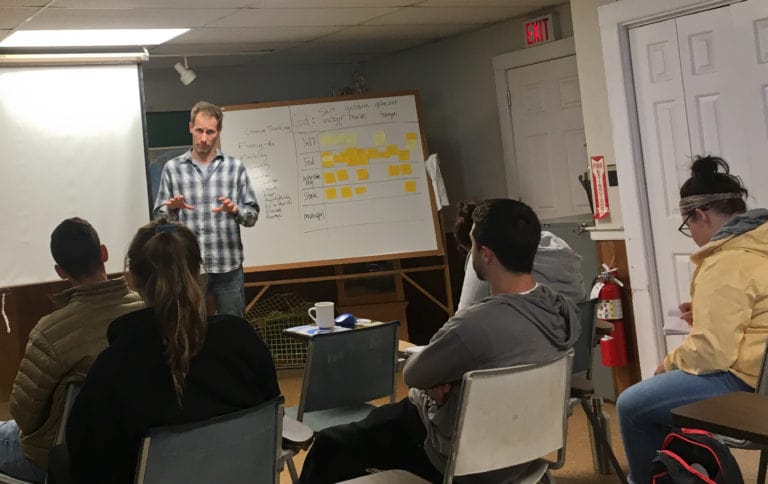How do industry consolidation and privatization of our oceans affect seafood supply chains? How can we balance effective fisheries management with safeguarding the livelihoods of multigenerational community-based fishing families while also protecting endangered marine species?
These are some of the questions that arise when we explore the intersection of policy, climate change, and shifting markets in undergraduate and graduate classrooms. There are no clear-cut answers. However, exploring the cause and effect of these complex dynamics provides a deeper understanding of our connection to seafood as a resource.
We work with professors to customize these discussions to complement advanced course curricula, whether the focus is on policy, market dynamics, marine ecosystem health or other issues.
How do industry consolidation and privatization of our oceans affect seafood supply chains? How can we balance effective fisheries management with safeguarding the livelihoods of multigenerational community-based fishing families while also protecting endangered marine species?
These are some of the questions that arise when we explore the intersection of policy, climate change, and shifting markets in undergraduate and graduate classrooms. There are no clear-cut answers. However, exploring the cause and effect of these complex dynamics provides a deeper understanding of our connection to seafood as a resource.
We work with professors to customize these discussions to complement advanced course curricula, whether the focus is on policy, market dynamics, marine ecosystem health or other issues.
Objective
Objective: A One Fish Foundation visit will spark these in-depth conversations and challenge students to:
-
Analyze complex issues such as consolidation, privatization of the oceans, and catch shares (policy that often excludes small-scale seafood harvesters) from all angles;
-
Propose effective solutions to some of these issues; and,
-
Re-think more deeply our connection to seafood as a shared public resource.
Results
Results: Students will leave these discussions prepared to:
-
Explore ways to effectively communicate some of this information to their own networks;
-
Integrate a deeper knowledge of seafood supply chains and fisheries management into their broader studies; and,
-
Engage in larger movements to affect meaningful change toward solutions.

One Fish Foundation will work with you to customize a lesson plan to tailor content to meet students where they are in your curriculum. For example, we’ve delved into the thorny issue of the conflict between Maine lobstermen and conservationists working to protect North Atlantic right whales, or discussed how outdated policy affects market dynamics and independent fish harvesters.

